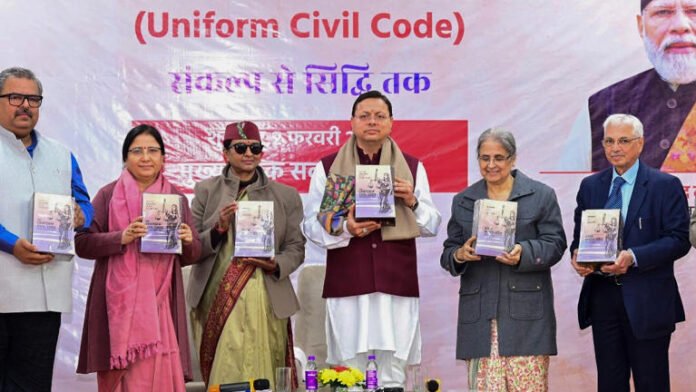The recent introduction of regulations governing live-in relationships under the Uttarakhand Civil Code has ignited a firestorm of controversy, with opposition parties accusing the Bharatiya Janata Party (BJP) of overreach into citizens’ private lives. The move has sparked concerns about individual freedoms and the encroachment of state intervention into personal relationships, raising questions about the government’s role in regulating the dynamics of modern relationships.
Under the newly proposed rules, couples in live-in relationships in Uttarakhand will be required to give written notice to the district magistrate, declaring their intent to cohabit. Additionally, they will need to provide evidence of their relationship, such as photographs, joint bank accounts, or a declaration made before a magistrate. Failure to comply with these regulations could result in financial penalties or even jail time.
Opposition parties have been quick to condemn the Uttarakhand government’s move, labeling it as intrusive and regressive. They argue that the state has no business interfering in the private affairs of consenting adults and that such regulations infringe upon individual freedoms and rights to privacy. Moreover, they warn that the enforcement of such rules could lead to harassment and discrimination against couples in live-in relationships.
Critics also point out the impracticality and arbitrariness of the proposed regulations, questioning how authorities would determine the legitimacy of a couple’s relationship or the evidence they provide. They argue that such measures are tantamount to moral policing and represent a throwback to a bygone era when personal relationships were subject to societal scrutiny and judgment.
The BJP-led government in Uttarakhand, however, defends the move as a means of promoting social cohesion and moral values. They argue that the regulations are intended to protect the institution of marriage and uphold traditional family values, which they view as essential for maintaining the fabric of society. Additionally, they claim that the rules are necessary to prevent exploitation and abuse in live-in relationships, particularly of women and children.
Proponents of the regulations also argue that they are in line with the principles of good governance, as they provide clarity and legal recognition to couples in live-in relationships. They contend that the requirements for providing evidence of the relationship and giving notice to the district magistrate are reasonable and necessary steps to ensure accountability and transparency.
However, critics remain unconvinced, arguing that the government’s justifications for the regulations are thinly veiled attempts to impose its ideological agenda on society. They accuse the BJP of using moral rhetoric to justify its authoritarian tendencies and warn of the dangers of creeping surveillance and control over citizens’ private lives.
The debate over the Uttarakhand Civil Code’s live-in relationship rules underscores broader tensions between individual liberties and state intervention in personal matters. It raises fundamental questions about the limits of government authority and the extent to which the state should regulate private relationships.
At its core, the controversy reflects shifting societal norms and attitudes towards marriage and relationships in India. As traditional family structures evolve and new forms of partnerships emerge, there is a growing recognition of the need for legal frameworks that accommodate the diverse realities of modern life. However, the imposition of heavy-handed regulations risks stifling personal freedoms and perpetuating outdated notions of morality and social conformity.
In the face of mounting opposition, it remains to be seen whether the Uttarakhand government will reconsider its stance on live-in relationships. The controversy has reignited discussions about the role of the state in regulating private lives and underscores the importance of protecting individual liberties in a democratic society.
As the debate continues to unfold, it is essential for policymakers to listen to the concerns of citizens and engage in meaningful dialogue about the implications of government intervention in personal relationships. Ultimately, the strength of a democracy lies in its ability to balance the competing interests of individual freedoms and societal values, and to uphold the principles of equality and justice for all.

